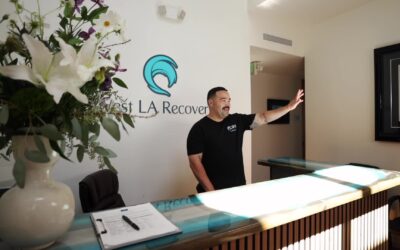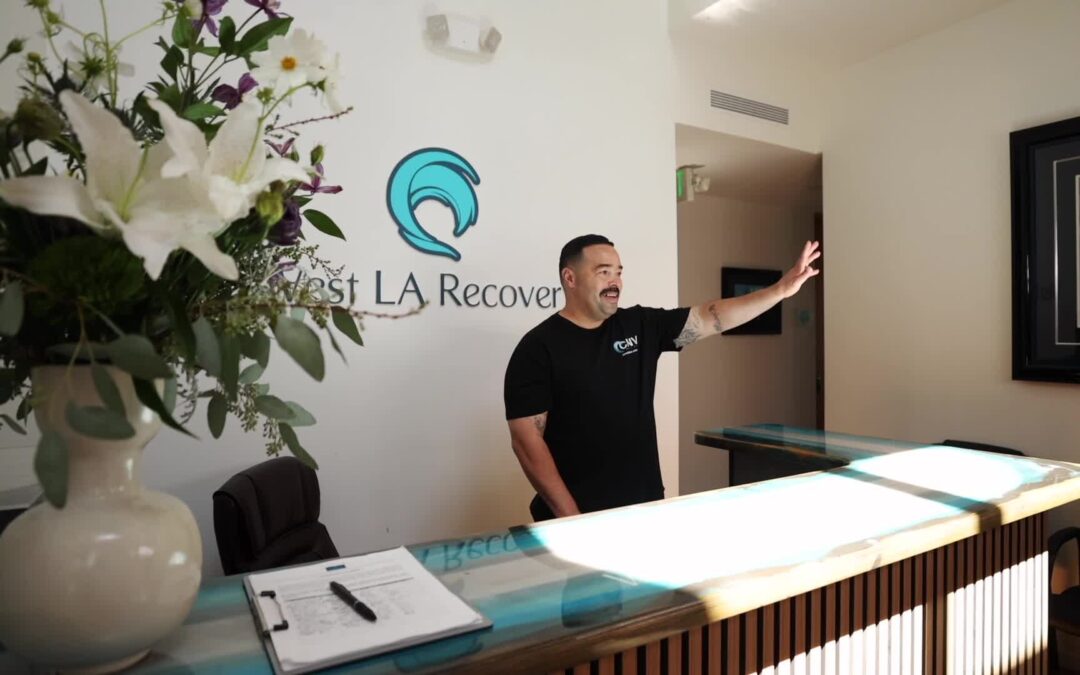Preparing for Your First Trauma Therapy Session
Walking into your first trauma therapy session can feel intimidating. You might experience nervousness, uncertainty, or even resistance—these reactions are completely normal when you’re about to discuss difficult experiences.
Mental and emotional preparation starts with acknowledging that healing takes courage. You don’t need to have everything figured out before you arrive. Give yourself permission to feel whatever comes up, whether that’s anxiety, hope, or ambivalence about starting therapy.
Before Your Appointment
Before your appointment, take time to jot down your thoughts. This simple act of trauma therapy preparation helps you articulate what you want from the experience:
- Your therapy goals: What changes do you hope to see in your life?
- Specific concerns: Which symptoms or struggles feel most pressing?
- Questions for your therapist: What do you need to know about the process?
- Past therapy experiences: What worked or didn’t work for you before?
What to Bring to Your Session
Consider what to bring to trauma therapy beyond paperwork. A journal gives you space to capture insights during or after sessions. Grounding objects—a smooth stone, a photo, or a small item that brings comfort—can help you stay present when discussions become challenging.
These first therapy session tips aren’t about perfection. You’re simply creating a foundation that supports your healing journey from the very beginning.
What Happens During the First Trauma Therapy Session?
Your first trauma therapy session begins with a trauma therapist introduction designed to create immediate comfort and trust. You’ll meet your therapist in a confidential space where they’ll explain their approach, credentials, and what you can expect from the therapy process overview. This initial conversation sets the foundation for your therapeutic relationship—you’re not just another client, but a person with a unique story that deserves compassionate attention.
Gathering Background Information
The therapist will gather background information about your life circumstances, including:
- Current symptoms and concerns that brought you to therapy
- Relationships and support systems in your life
- Medical history and any medications you’re taking
- Previous therapy experiences (if applicable)
- Specific therapy goals you’d like to achieve
You won’t be expected to share your full trauma story during this first session. The focus remains on understanding your current needs and building safety.
Introducing Trauma Therapy Options
Your therapist will introduce various trauma therapy options available to you:
- EMDR (Eye Movement Desensitization and Reprocessing): uses bilateral stimulation to process traumatic memories.
- Cognitive Behavioral Therapy (CBT): helps you identify and change thought patterns connected to trauma.
- Somatic work: addresses how trauma lives in your body through physical sensations and movement.
We tailor these approaches to your individual needs, comfort level, and specific trauma history. You’re not locked into one method—your first session what to expect from trauma therapy includes flexibility in finding what works best for you.
Safety Assessments and Emotional Processing in Initial Sessions
During your first session, your therapist will conduct a trauma therapy safety assessment. This assessment is crucial for understanding your current mental state and creating a suitable support plan, but rest assured, answering honestly won’t lead to hospitalization. We ask about self-harm or suicidal thoughts to gauge the level of care you need. Self-harm screening trauma therapy is an essential part of this process, allowing most clients to continue outpatient treatment while we collaboratively develop safety strategies.
The Role of Silence in Therapy
You’ll likely experience periods of silence during your session. These aren’t awkward pauses; instead, they’re intentional spaces designed for you to sit with your feelings. Emotional processing trauma recovery requires time to identify what you’re experiencing physically and mentally. Your therapist understands that healing happens in these reflective spaces and won’t rush to fill every quiet moment.
Our Trauma-Informed Approach
We prioritize a trauma-informed approach that recognizes the risk of re-traumatization when therapy moves too quickly or pushes you beyond your window of tolerance. You won’t be compelled to share details about your trauma before you’re ready. We’ll:
- Respect your boundaries and pacing preferences
- Watch for signs of overwhelm or dissociation
- Teach grounding techniques before processing traumatic memories
- Allow you to pause or stop discussions that feel too intense
Listening to Your Nervous System
Your nervous system’s response guides our approach. If you become activated or shut down, we’ll slow down and help you return to a regulated state before continuing.
Understanding the role of emotional processing in trauma recovery is essential, as it requires time and patience to navigate through the feelings. It’s equally important to recognize how self-harm screening can help tailor the level of care needed, ensuring that most clients can still engage in outpatient treatment while we work on their safety strategies together.
Homework and Between-Session Support in Trauma Therapy
Your healing doesn’t stop when you leave our office. Trauma therapy homework is designed to bridge the gap between sessions, allowing you to practice new skills and keep the momentum going in your recovery journey.
Common Between-Session Assignments
You might receive various assignments tailored to your specific needs:
- Journaling for trauma recovery – Writing about your experiences, emotions, or daily observations helps you process feelings at your own pace
- Reading materials – Articles or book chapters that provide psychoeducation about trauma responses and coping mechanisms
- Grounding exercises – Practicing techniques learned in session to manage anxiety or flashbacks when they arise
- Tracking patterns – Noting triggers, emotional responses, or physical sensations to identify patterns we’ll explore together
Self-Care After Sessions
What to expect from trauma therapy includes experiencing different emotions after each appointment. You might feel relief, exhaustion, or even temporary emotional intensity. We encourage you to:
- Schedule lighter activities following your sessions when possible
- Engage in soothing practices like taking a walk, listening to music, or connecting with supportive people
- Honor your need for rest without judgment
Between-session coping strategies aren’t about perfection. You won’t be graded on your homework. These assignments exist to support your healing, and we’ll adjust them based on what feels manageable for you. If an assignment feels overwhelming, you can always discuss modifications during your next session.
How Trauma Therapy Supports PTSD and Overall Recovery
PTSD therapy West Los Angeles offers you a structured path toward reclaiming your life from the grip of traumatic memories. Trauma therapy Los Angeles CA focuses on developing practical coping skills that help you manage negative thoughts and feelings connected to your experiences. You’ll learn to recognize triggers, regulate emotional responses, and build resilience that extends into every area of your daily life.
How Therapists Help with PTSD and Trauma Recovery
How therapists help with PTSD and trauma recovery involves utilizing evidence-based techniques proven to reduce symptoms and restore functioning. You might work with us using:
- Cognitive Processing Therapy (CPT) – helping you examine and challenge unhelpful beliefs about your trauma
- Prolonged Exposure (PE) – gradually confronting trauma-related memories and situations you’ve been avoiding
- Eye Movement Desensitization and Reprocessing (EMDR) – processing traumatic memories through bilateral stimulation
- Narrative Exposure Therapy (NET) – creating a coherent timeline of your life experiences to integrate traumatic events
Cognitive Behavioral Therapy for Trauma
Cognitive behavioral therapy for trauma teaches you to identify the connection between your thoughts, feelings, and behaviors. You’ll discover how changing thought patterns directly impacts your emotional well-being and physical responses to stress.
The Benefits of Trauma Recovery
The trauma recovery benefits you experience extend beyond symptom reduction. You’ll notice improved relationships, better sleep quality, increased confidence, and a renewed sense of control over your life. Each technique we use is tailored to your specific needs and comfort level.
What You Can Expect From Continued Trauma Therapy Sessions?
Now that you’ve found a trauma therapist, here’s what to expect as you move beyond those initial appointments. Your ongoing trauma therapy expectations will center around a relationship built on trust, respect, and collaboration.
The Therapeutic Partnership
You’ll develop a working relationship with your therapist that honors your unique pace of healing. This collaborative partnership means you’re never pushed to discuss topics before you’re ready. Your therapist will check in regularly about what feels manageable and adjust the approach based on your feedback. You maintain control over your healing journey—no pressure, no forced timelines, just steady support as you work through trauma at a speed that feels right for you.
Flexible Session Formats
Long-term PTSD treatment in Los Angeles offers various options to fit your lifestyle and needs:
- In-person sessions at our West LA location for face-to-face connection
- Virtual sessions through secure video platforms when you need flexibility
- Sliding scale fees to make ongoing care financially accessible
- Session frequency that adapts as your needs change—weekly, bi-weekly, or monthly
You’ll notice patterns emerging across sessions. Some weeks feel lighter as you process difficult material. Other sessions might focus on skill-building and strengthening your coping toolkit. Your therapist tracks your progress while remaining flexible enough to address new challenges as they arise.
For more information on related topics, such as mental health, be sure to explore our resources. Additionally, if you’re interested in understanding how to prevent childhood toxic stress or looking for helpful community resources in Roanoke, you can refer to this 2023 Roanoke City Resource List.
Taking the Next Step Toward Healing at West LA Recovery
You’ve learned what to expect from trauma therapy—now it’s time to take action. Starting your trauma recovery in Los Angeles doesn’t have to feel overwhelming when you have the right support system.
At West LA Recovery, we understand that your experience with trauma is unique. That’s why we offer personalized support tailored specifically for your healing journey. You won’t find a one-size-fits-all approach here. Instead, you’ll work with compassionate professionals who take time to understand your story, your triggers, and your goals.
Finding a PTSD therapist in West LA who truly gets it makes all the difference. Our team specializes in evidence-based treatments including:
- CBT for trauma recovery that helps you reframe negative thought patterns
- EMDR to process traumatic memories safely
- Somatic approaches that address how trauma lives in your body
- Cognitive processing therapy tailored to your specific needs
We’ve designed our care around your unique experience with trauma and PTSD. You deserve a therapeutic relationship built on trust, respect, and genuine understanding.
Our services also extend beyond just trauma recovery. We are committed to exploring the impact of trauma on addiction, providing dual diagnosis treatment for co-occurring disorders. It’s crucial to understand that drug abuse is more than just a physical problem, and we aim to unveil the hidden causes of addiction, from mental health issues to social factors.
Ready to begin? Contact us today through our website or by phone to schedule your first session. We offer flexible scheduling options and sliding scale fees to make healing accessible.
Your journey toward recovery starts with a single conversation. Let’s have that conversation.
FAQs (Frequently Asked Questions)
How should I prepare for my first trauma therapy session?
To prepare for your initial trauma therapy session, mentally and emotionally ready yourself by noting down your thoughts, goals, and any questions you have ahead of time. Bringing grounding objects or a journal can provide comfort during sessions.
What can I expect during the first trauma therapy session?
During your first trauma therapy session, you’ll be introduced to your therapist in a safe, supportive environment. The therapist will gather background information about your life, relationships, health, and therapy goals, and explain various trauma therapy options such as EMDR, CBT, or somatic work tailored to your needs.
How do therapists ensure safety and emotional processing in early trauma sessions?
Therapists conduct safety assessments including screening for self-harm or suicidal thoughts without automatic hospitalization. They use moments of silence to allow you to process emotions and ensure a trauma-informed approach that avoids re-traumatization throughout the sessions.
What kind of homework or support should I expect between trauma therapy sessions?
Between sessions, you may receive homework assignments like journaling or reading materials to support your healing. Therapists encourage engaging in self-care practices to manage feelings such as relief or tiredness following sessions.
How does trauma therapy support PTSD recovery?
Trauma therapy helps with PTSD by developing coping skills for negative thoughts and feelings related to trauma. Techniques used include cognitive behavioral therapy (CBT), cognitive processing therapy (CPT), prolonged exposure (PE), EMDR, and narrative exposure therapy (NET), all aimed at improving quality of life.
What should I expect from ongoing trauma therapy sessions at West LA Recovery?
In continued trauma therapy at West LA Recovery, you’ll build a collaborative partnership with your therapist that respects your individual pace and empowerment without pressure. Sessions may be in-person or virtual with flexible fee options such as sliding scale fees tailored to support your long-term PTSD treatment journey.







